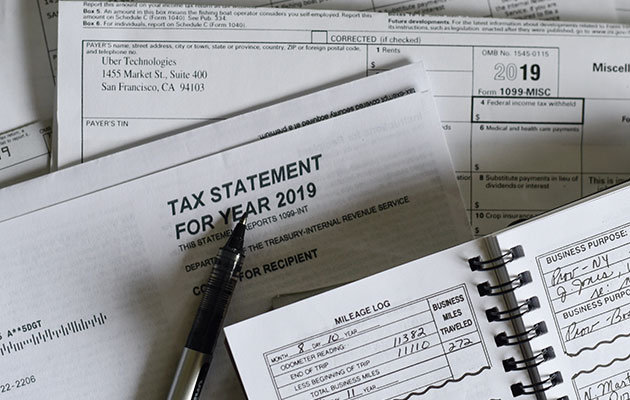-
Articles
Drafting Contracts to Avoid Business Problems and Reduce the Risk of Assessments
Contracts are essential to business, both as important tools and as evidence to determine whether parties have complied with their business agreements. If a contract is breached, the non-breaching party can sue or claim damages against the other party. Therefore, it is important to ensure that contracts are consistent with the transaction terms, to protect the parties’ interests. Certain types of contracts, and contract terms, also may create tax liabilities. The tax consequences of a contract are a secondary factor that must be considered during the drafting process. Tax aspects should not be neglected because when taxes are not paid correctly, the risk of additional taxes, fines, and fees cannot be avoided, and can create large damages risks.
In order to reduce the risk of tax assessments, contracts should be drafted accurately and taxes should be calculated and paid properly and in a timely manner. Although this may seem like a simple answer, it is the most accurate and realistic one. Proper tax compliance means paying taxes correctly: paying what is owed, while ensuring that no unnecessary taxes are paid due to unclear contract terms. If a transaction is not structured clearly, there is a risk that the Revenue Department may deem the contract to be a different type of contract, with different tax liabilities.
When a contract is clear and accurately reflects the true nature of the transaction, both the contracting parties and the contract beneficiaries are protected against the risk of tax reassessment by the tax authorities. However, if a contract is drafted solely for tax purposes, and does not align with the actual nature and form of the transaction, tax officials may disregard the contract terms (no matter how well-written). This is because the Revenue Department and the Supreme Court’s Tax Division adhere to the principle of "Substance Over Form."
The Substance Over Form Principle states that even if a legal act or contract is executed in accordance with legal formalities, if its purpose is to avoid taxation and it results in no tax liability or reduced tax liability, the taxing authorities have the power to disregard the act or contract and assess taxes based on the economic substance of the transaction (Barry Larking, p. 333). However, if any step in the arrangement constitutes a legally valid act, the tax authorities have no power to disregard the legal act or contract.
In Supreme Court Judgment No. 2975/2547:
“The plaintiff sold air conditioning parts and components, which could be assembled into a complete fan coil unit and condensing unit. Since these components were sold separately but could be combined into a complete air conditioning unit, the transaction was deemed to constitute the sale of a complete set of goods, even though the items were not pre-assembled. Therefore, the plaintiff was liable for excise tax. Since the plaintiff had not properly paid the required tax, the first defendant (tax authority) had the legal authority to assess and impose the tax in accordance with the law.
Similarly, in Supreme Court Judgment No. 4679/2549:
"Company A operated a real estate business, selling houses and land to customers, with an obligation to provide boats and docking facilities as part of the purchase, as well as to construct an entrance between the river, the clubhouse, and the docking area. If Company A had constructed these facilities itself, it would not have been eligible for a tax refund. To circumvent this, Company A established the plaintiff company, which was registered for value-added tax (VAT). The plaintiff subsequently leased the land from Company A and constructed the facilities in the name of plaintiff. However, no entrance fees or docking fees were charged, and Company A did not collect any rent from the plaintiff. The input VAT claimed for a refund by the plaintiff was actually related to Company A's business operations rather than the plaintiff’s. Therefore, the plaintiff was not entitled to claim the VAT refund.”
In the Supreme Court judgments cited above, the cases involved tax avoidance planning that did not align with the actual transactions, which as a result were considered sham transactions. The Revenue Department and the Supreme Court do not accept these arrangements; tax planning must be legally supported and accurately reflect real business transactions, based on the substance over form doctrine. If the actual transaction does not conform to the contract, and the contract is made solely for tax purposes, it will be subject to tax assessments.
However, even when a contract accurately reflects the actual transaction, certain tax risks must be carefully considered. This is because contracts that are ambiguous, and allow for multiple interpretations, may create tax risks. If a contract can be interpreted as involving a different type of transaction, tax complications may result. For example, a service agreement may initially appear to be a general service contract that does not qualify as a royalty agreement. However, if the contract provisions grant the service provider the right to restrict information, or include confidentiality clauses that prohibit disclosure to third parties without the express written consent of the other contracting party, there is a risk that tax authorities might interpret the agreement as a royalty agreement.
The Revenue Department addressed this issue in ruling No. Khor. Kor. 0706/9628, dated 17 November 2005, which states "if consulting and advisory services on aircraft maintenance involve providing information related to industrial, commercial, or scientific experience—where the Company A and Company S have exclusive rights to such information—then the supervision fee paid for these services could be classified as a royalty payment under Article 12 of the relevant tax treaty."
Conversely, in Ruling No. Khor. Kor. 0706/2501, dated 14 March 2003, the Revenue Department ruled that “if a service agreement involves only general service provisions without the transfer of proprietary information, the income derived from such services would be considered business profits."
If a service agreement does not involve the transfer or disclosure of proprietary knowledge or restricted information, but instead covers general services, such as business consulting, business management services, or IT services (excluding the right to use software or source code), the contract should not include provisions stating that the service provider has exclusive rights to the information or requiring the service recipient to maintain confidentiality and prohibiting disclosure to third parties without express permission from the provider. This is because, in practice, general service arrangements typically do not involve the transfer of trade secrets or proprietary knowledge, and service recipients are unlikely to share confidential business information with outside parties.
A practical solution to maintaining confidentiality without creating tax risks is to establish the confidentiality obligations in a separate, standalone Non-Disclosure Agreement (NDA) rather than including confidentiality clauses in the service agreement. This approach reduces the likelihood of tax authorities misinterpreting the agreement as a royalty agreement instead of a general service contract.
However, when contracts genuinely grant rights to intellectual property—such as software licensing agreements—the absence of confidentiality clauses does not change the fundamental nature of the agreement. If the essence of the contract involves the transfer of restricted knowledge or proprietary information, it still will be classified as a royalty agreement for tax purposes, even if an NDA is signed separately.
Given the complexities surrounding contract drafting and the potential tax risks, businesses should consult legal and tax experts when preparing or reviewing agreements. This ensures that contracts are structured correctly, and minimizes the risk of disputes or adverse tax interpretations arising in the course of business operations.
This article is intended as merely a regulatory overview, and is not intended to be comprehensive or to constitute legal advice. If you have any questions on this or on other areas of tax law, please do not hesitate to contact our Tax Team at SCL Nishimura & Asahi Limited.
Budhima Kerdsiri
Counsel
Hatairat Sukprasert
Associate








Budhima provides advice on tax compliance and a wide variety of tax-related work. In particular, she has extensive experience with accounting transactions and tax planning. Further, she has handled tax counseling and tax controversies and has substantial experience representing and advising individuals and major corporations in tax disputes, including filing appeal letters for tax assessments, which were assessed by the Revenue Department, the Customs Department, the Excise Department, and local tax collection agencies such as those dealing with land and building tax. In addition, she has more than 10 years of experience as a public speaker and columnist for tax magazines, focusing on tax planning and tax compliance for individuals and companies seeking to maximize their tax privileges under Board of Investment (BOI) promotion and accounting adjustments to comply with Thai tax laws.
Budhima was a columnist for the Tax Documentation Journal, the No. 1 public journal related to accounting and taxation published by Dharmniti Press Co., Ltd., and she is also the author of “Differences and similarities between accounting profit and taxable profit,” a book that has been published twice.